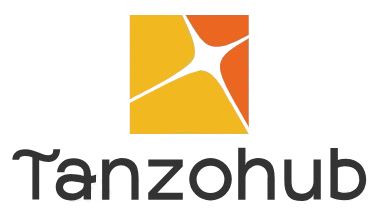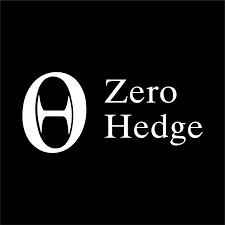The ZeroHedge Phenomenon: Analyzing Its Digital Footprint and Influence
ZeroHedge, a financial and political commentary platform, has carved out a unique niche in the digital media landscape. Known for its incisive takes on economics, politics, and societal trends, it has attracted a dedicated following and sparked debates around its content and the narratives it promotes. Let’s delve into the key aspects of ZeroHedge’s presence across platforms, its influence, and what drives its appeal.
The Origins and Identity of ZeroHedge
Launched in 2009 during the aftermath of the global financial crisis, ZeroHedge quickly gained a reputation for its critical analysis of economic policies, corporate malpractices, and financial markets. Founded under the pseudonym “Tyler Durden,” a nod to the fictional character from Fight Club, the site’s anonymity contributed to its mystique and aura of rebellion against mainstream media narratives.
ZeroHedge positions itself as a counter-narrative to traditional financial journalism, focusing on stories that are often overlooked or underreported. Its readers are drawn to its raw, unfiltered style and its willingness to challenge conventional wisdom.
Few Important Concepts of ZeroHedge
1. ZeroHedge Milton: A term occasionally associated with discussions on economic thought, though its exact connection to ZeroHedge is unclear. Likely user-generated or regional context-specific.
2. Zero Hedge Website: The official site, www.zerohedge.com, serves as the primary hub for its news, analysis, and community discussions.
3. ZeroHedge.com: The core platform where ZeroHedge publishes its financial and political content. It remains the center of its digital ecosystem.
4. Common Misspellings: Variations like “zeto hedge,” “zerohesge,” or other typos are frequent in search queries, reflecting its widespread reach and user interest despite spelling errors.
ZeroHedge’s Web Presence: A Snapshot
With over 351,000 average monthly searches, “ZeroHedge” has established a significant presence in online search behavior. Its official website, zerohedge.com, serves as the primary platform for publishing content, attracting more than 208,000 direct search queries monthly. The site features a mix of news, opinion pieces, and user-generated content that cover a wide array of topics, from global macroeconomics to geopolitics.
Twitter: The Social Media Amplifier
ZeroHedge has an active presence on Twitter, engaging over 5,100 searches monthly for its account. Twitter serves as a crucial tool for disseminating its content quickly, fostering discussions, and reaching a global audience. The platform’s real-time nature aligns with ZeroHedge’s focus on timely, breaking news and analysis.
Why Does ZeroHedge Resonate?
- Alternative Perspective: In an era of growing skepticism toward mainstream media, ZeroHedge appeals to audiences seeking alternative viewpoints and critical analysis.
- Timeliness: The platform is renowned for being ahead of the curve on financial and geopolitical developments, providing insights that often precede mainstream reporting.
- Community Engagement: ZeroHedge has cultivated a loyal community of readers who not only consume content but actively discuss and contribute to the discourse.
Controversies and Criticisms
Despite its popularity, ZeroHedge is no stranger to controversy. Critics argue that its articles occasionally veer into conspiracy theories or lack the rigorous verification standards of traditional journalism. These criticisms have led to platform bans and temporary suspensions, particularly on social media platforms.
However, ZeroHedge’s supporters see these actions as evidence of its commitment to challenging established norms and exposing uncomfortable truths. This dynamic has only amplified its visibility and appeal among those distrustful of conventional media.
The Broader Implications
The success of ZeroHedge underscores the shifting landscape of media consumption in the digital age. Its ability to maintain a robust following amidst criticism reflects a growing appetite for diverse and dissenting viewpoints.
As financial markets, geopolitical tensions, and societal challenges evolve, platforms like ZeroHedge are likely to play an increasingly pivotal role in shaping public discourse. However, the ongoing debate about the balance between freedom of speech and the responsibility of platforms to curb misinformation remains critical to its future trajectory.
Conclusion
ZeroHedge is more than just a financial news website; it is a cultural phenomenon that embodies the intersection of skepticism, curiosity, and a desire for unfiltered information. Whether celebrated as a bastion of truth or critiqued for its controversial stances, its influence on digital media and public discourse is undeniable.
FAQs About ZeroHedge
1. What is ZeroHedge?
ZeroHedge is an online platform that focuses on financial, economic, and political commentary. It is known for its critical analysis, contrarian views, and alternative takes on global events.
2. Who founded ZeroHedge?
ZeroHedge was founded in 2009 by a group of anonymous contributors, collectively using the pseudonym “Tyler Durden,” a character from the film Fight Club. This anonymity adds to its mystique and appeal.
3. What kind of content does ZeroHedge publish?
ZeroHedge publishes a mix of news, opinion pieces, and user-generated content. Its topics range from global macroeconomic trends and financial market analysis to politics and societal issues.
4. Is ZeroHedge a reliable source of news?
ZeroHedge provides alternative viewpoints and often covers stories that mainstream media may overlook. However, critics argue that some content may lack rigorous fact-checking or veer into conspiracy theories. Readers are advised to cross-reference information with other credible sources.
5. Why is ZeroHedge controversial?
ZeroHedge has faced criticism for promoting unverified claims and conspiracy theories. It has also been temporarily banned from platforms like Twitter due to policy violations, which has fueled debates about censorship and media freedom.
6. How popular is ZeroHedge?
ZeroHedge garners significant online attention, with over 351,000 monthly searches and a loyal reader base. Its website and social media presence contribute to its widespread reach and influence.
7. Does ZeroHedge have a presence on social media?
Yes, ZeroHedge is active on platforms like Twitter, where it shares breaking news and articles. Its account attracts over 5,100 searches monthly and engages a global audience.
8. Is ZeroHedge free to access?
While much of the content on ZeroHedge is available for free, the platform also offers premium subscriptions for users seeking additional features, such as exclusive content and an ad-free experience.
9. What is the target audience of ZeroHedge?
ZeroHedge primarily targets readers interested in finance, economics, and politics. Its audience often includes market professionals, policymakers, and individuals seeking alternative news sources.
10. How does ZeroHedge generate revenue?
ZeroHedge generates revenue through advertising, premium subscriptions, and partnerships. Its business model leverages its high traffic and engaged readership.
11. Can users contribute to ZeroHedge?
Yes, ZeroHedge accepts user-generated content, which adds to the diversity of perspectives featured on the platform. However, submissions may be subject to editorial review.
12. Where can I access ZeroHedge?
ZeroHedge can be accessed through its official website, zerohedge.com, and its social media channels, such as Twitter.
13. Does ZeroHedge lean politically left or right?
ZeroHedge is often considered contrarian and libertarian, criticizing policies and institutions from both sides of the political spectrum. Its content does not strictly adhere to a single ideological perspective.
14. What is the significance of the “Tyler Durden” pseudonym?
The pseudonym “Tyler Durden” reflects the platform’s rebellious ethos and its focus on exposing systemic issues, similar to the character’s philosophy in Fight Club.
15. How does ZeroHedge compare to mainstream financial media?
ZeroHedge distinguishes itself by focusing on underreported stories, providing alternative viewpoints, and engaging with a community of readers seeking non-mainstream narratives. However, mainstream outlets often adhere to stricter editorial standards.

